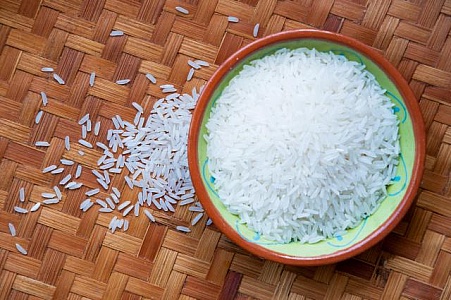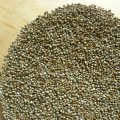Basmati Rice is a variety of long, slender-grained aromatic rice which is traditionally from the Indian subcontinent .Basmati rice occupies a prime position on account of its extra long superfine slender grains, pleasant, exquisite aroma, , sweet taste, soft texture, length‐wise elongation with least breadth‐wise swelling on cooking tenderness of cooked rice and fine cooking quality. A rice of good eating quality should be low amylose and protein contents and large breakdown as measured by an amylograph. In this piece we will look at basmati rice advantage and disadvantages
Top Basmati Rice Health Benefits
Basmati Rice Has High Calorie
A high–calorie diet is a type of diet in which it is comprised of food high in protein, carbohydrate, fat, vitamins and minerals. In this type of diet, the calories could amount to 4000 to 5000 calories a day’. For Individuals looking for high energy food in their regular diet should prefer basmati over other varieties of rice. About 200 grams of when cooked contains more than 200 calories and are thus the good source of instant energy. In addition, wholegrain Basmati rice has the lowest GI (glycaemic index) of all rice types, which means once digested it releases its energy slowly keeping blood sugar levels more stable, which is a crucial part of diabetes management.
Basmati Rice For Weight Loss and Maintenance
The purpose of a glycemic index (GI) diet is to eat carbohydrate-containing foods that are less likely to cause large increases in blood sugar levels. The diet could be a means to lose weight and prevent chronic diseases related to obesity such as diabetes and cardiovascular disease .
The glycemic index categorizes carbohydrates based on how they affect blood sugar and help you on your weight-loss diet. Foods with a low-glycemic index digest slowly and may help aid in hunger control and weight loss. When it comes to glycemic index, basmati rice has a lower GI than regular rice — 67 vs. 89 — which may make it a better choice whether you’re trying to lose or maintain a healthy weight.
Basmati Rice is Low in Fat and Gluten Free
According to the American Cancer Society, Watching the amount of fat you eat is important because diets high in fat increases the risk of cardiovascular conditions. Each gram of fat contains twice the kilojoules (energy) of carbohydrate or protein. A bowl with 200 grams rice contains less than 1 grams of fat. Moreover, this variety of rice doesn’t contain cholesterol at all. All these qualities make a nutritionally apt food item for the regular consumption. Besides, 11-21 Rice and all other basmati varieties are free of gluten. Those who don’t consumer gluten rich cereals and grains due to health issues find basmati rice to be a great alternative. READ: Is Ham Healthy
Vitamins and Minerals in Basmati rice
Vitamins and minerals are essential nutrients because they perform hundreds of roles in the body. Eating a healthy diet remains the best way to get sufficient amounts of the vitamins and minerals you need. Basmati rice is rich in Vitamin B which is necessary for breakdown of carbohydrates into glucose. It also affects functions in the brain and stabilizes mood. The predominant B vitamins found in basmati are niacin, vitamin B6 and vitamin B1, thiamine.. These vitamins keep heart, nervous system and digestive system in good health and are also beneficial for having a healthy skin.
Basmati Rice is a good Source of Fiber
Dietary fiber refers to nutrients in the diet that are not digested by gastrointestinal enzymes but still fulfill an important role. Mostly found in vegetables, fruits, whole grains, and legumes, fiber has a host of health benefits, including reducing the risk of heart disease , colon cancer and diabetes. Basmati rice is a good source of fiber which can speed the passage of food in the digestive tract thereby shortening the transit time and helps prevent exposure to cancer causing substances in the digestive tract. Also See: List Of Protein foods in Nigeria and their functions





